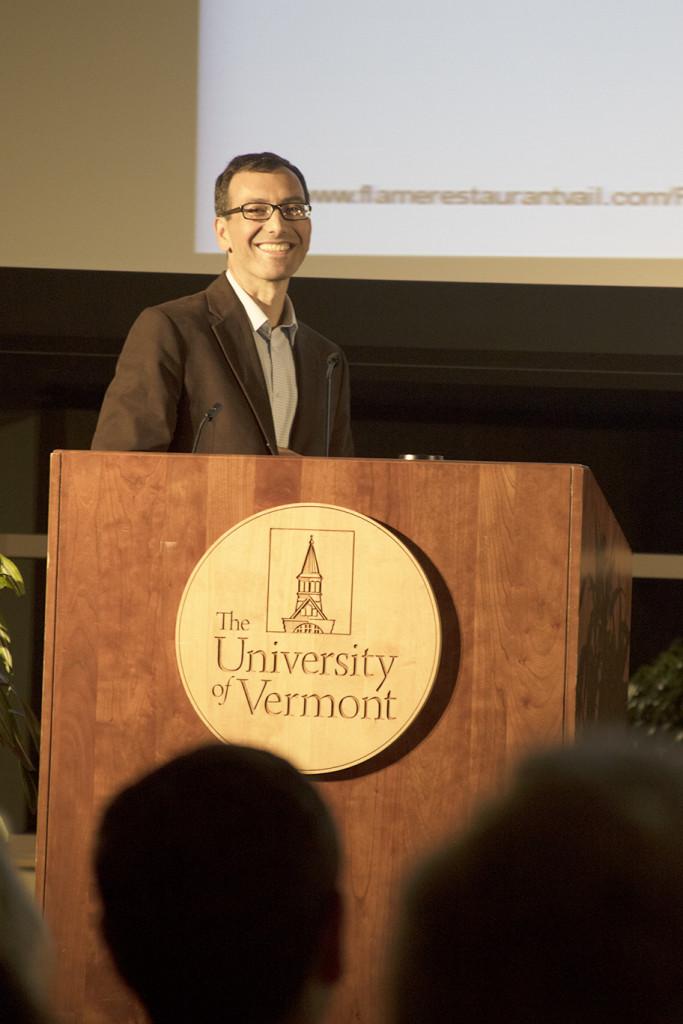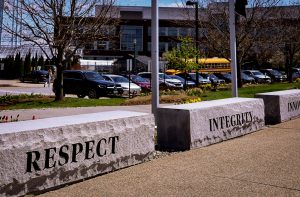Alumnus discusses lobbying in U.S.
September 29, 2015
New York Times reporter, Eric Lipton, held a lecture on corporate lobbying in America Sept. 21. Lipton spoke about a series of articles about corruption in lobbying. The articles earned him the Pulitzer Prize for Investigative Reporting.
Lipton is an alumnus of UVM and The Vermont Cynic.
Lipton’s lecture, “Lobbying in America: White Hats, State Troopers, Ski Resorts and Buckets of Money,” attracted students, community members, local politicians and nonprofit organization members from around Burlington.
“When you hear politicians talking about issues, too often there’s money behind it,” Lipton said.

Lipton found state attorneys general across the country, including Vermont, accepting campaign contributions from corporations to stop investigations on their activity and from law firms to assign them cases that would win them millions.
Lipton emphasized that often these aren’t registered lobbyists.
Former attorneys general use connections to help corporations.
Even foreign countries use American think tanks to publish favorable studies rather than send ambassadors to influence issues, like military protection of oil drills.
First-year Scott Weiner expressed interest in corporate lobbying after attending the lecture.
“I’m walking away with a better understanding of lobbying, the negative aspects of it,” Weiner said. “I like that he left it ambiguous…what can we do about it?”
Lipton also expressed concern for experts that are deceptively presented as third-party supporters for corporations.
He spoke about organic food companies who pay professors to travel and talk about the harmfulness of genetically modified organisms.
“University professors and their research are becoming extensions of the lobbying campaign, tools of the corporate effort,” Lipton said.
He also spoke about a battle between the trucking industry and railroad industry.
He caught railroad companies making donations to charity groups that support state troopers.
The troopers then spoke in Washington, D.C. about the danger of overloading trucks, while the railroad industry raked in the truckers’ shipping business.
“Subterfuge like this creates inability for the public to understand who is calling the shots … no transparency can start to undermine democracy,” Lipton said.
After hearing about Lipton’s extensive research, students called him a “detective” and a “political spy.”
“It was very interesting considering the presidential election coming up,” first-year Sophie Behrend said.
First-year Kalia Bornstein said she left the lecture with many questions about lobbying and politics in America.
“Money or justice? Where is the boundary? How do we determine, is there a way to know why politicians are talking about [an issue]?” Bornstein said.
Lipton concluded his talk telling students to value their undergraduate liberal arts education.
He called this time “incredibly valuable” and said he is “still a Vermont Cynic.”
“It’s cool he appreciates where he is from, just like we appreciate that he’s here,” first-year Dominique Boccanfuso said.







